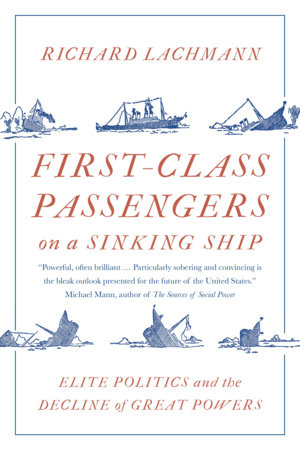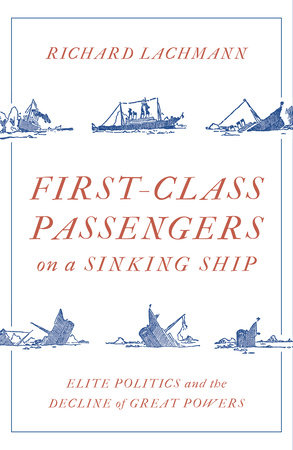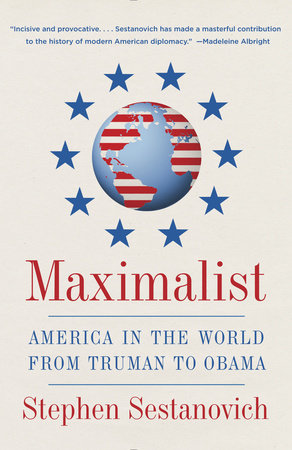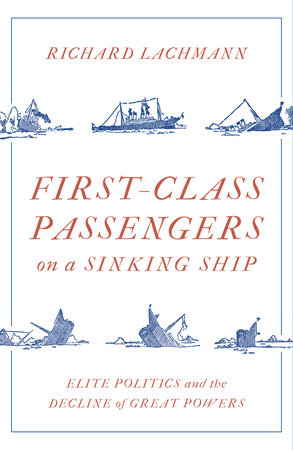

First Class Passengers on a Sinking Ship
By Richard Lachmann
By Richard Lachmann
By Richard Lachmann
By Richard Lachmann
By Richard Lachmann
By Richard Lachmann

-
$24.95
Aug 06, 2024 | ISBN 9781788734080
-
$34.95
Jan 14, 2020 | ISBN 9781788734073
-
Jan 14, 2020 | ISBN 9781788734103
YOU MAY ALSO LIKE

How to Be a Fascist

Who Stole the American Dream?

7 Deadly Scenarios

Jihad vs. McWorld

The Next Age of Uncertainty

Radical Son
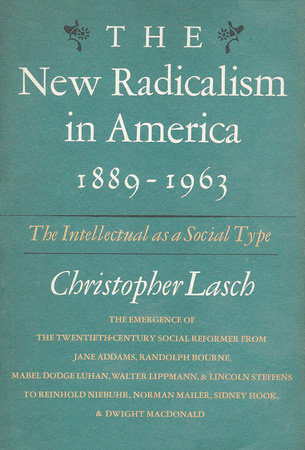
New Radicalism in America

The Edge of Disaster
Praise
“‘Hegemonic decline,’ to borrow a phrase from one of Trump’s ancestors, makes one want to release the safety catch on one’s Browning. A petrified debate whose time had come and gone … or so I believed until I opened Lachmann. This is a highly original synthesis that blends world systems theory and comparative history with an astute analysis of contemporary US politics to draw powerful and uncomfortable conclusions.”
—Mike Davis
“One of the most important developments in recent times is the American elites’ loss of influence in global affairs, concurrent with its consolidation of power at home. In this brilliant, sweeping analysis, Richard Lachmann connects the dots and explains how the two processes are related. Placing the United States in the context of its imperial predecessors, he helps us understand America’s place in the rogues’ gallery of global powers. And most importantly, he helps us see that the American oligarchs will be perfectly happy to see the rest of the nation sink, if that’s what it takes to hold on to their dwindling possessions. A work of great depth and moral clarity, it deserves the widest possible audience.”
—Vivek Chibber
“In this historically deep and richly cross-national study of empires and hegemons, Richard Lachmann brings forth new information and a highly original analysis to cast a bright light on the United States and its likely future. Whether social scientists and historians are inclined to agree with him or not, they will have to deal with the fact that his analysis shows that all of them are at least partially wrong about empires and hegemons in one way or another.”
—G. William Domhoff, Distinguished Professor Emeritus and Research Professor, University of California, Santa Cruz
“This is a powerful, often brilliant, comparative account of the rise and especially the decline of hegemonic powers, focusing most on the Netherlands, Britain, and the United States. Emphasis is placed on the way in which competing elites within the hegemon pursue their own narrow interests to block effective coping with decline. Particularly sobering and convincing is the bleak outlook presented for the future of the United States.”
—Michael Mann, Distinguisher Research Professor, UCLA, author of The Sources of Social Power
“Working on a strikingly broad comparative canvass Lachmann bridges two genres that are usually widely separate: serious comparative historical sociology, and public engagement. His book asks ‘what is the connection between the structure of elite relations and the durability of hegemony, understood as a form of power in which the leadership of the dominant group is “perceived by subordinate groups as serving a more general interest”?’ Hegemons, unlike simple empires, set the global rules of the game. Their power ‘thus … extends beyond their formal and informal territorial possessions to encompass the entire world.’ Lachmann’s answer to this question is that hegemony is possible where there exist plural elites combined with a low level of elite conflict. Where, in contrast, elites are singular (as in the Nazi or Napoleonic empires) or where there is a high level of conflict (as in the Absolutist cases), hegemony is impossible. In the first sort of case elites simply dominate the lands that they conquer in order to extract resources without gaining any local allies. In the second case elites entrench their own interests at the expense of the general interest; they thus become ‘autarkic’ and their own interests split apart from the general interest. This brilliant book, written in the venerable tradition of C. Wright Mills, will be of interest to a wide range of scholars and to the educated public at large. Lachmann shows that comparative and historical sociology is alive and kicking. Bravo!”
—Dylan Riley
“This provocative and sobering indictment often hits its targets.”
—Publishers Weekly
“Masterful … Lachmann shows us that, far from being unique to the period of British denouement, the destructive pursuit of such narrow self-interest by elites has repeatedly caused the decline of great powers throughout historical capitalism.”
—Journal of World-Systems Research
21 Books You’ve Been Meaning to Read
Just for joining you’ll get personalized recommendations on your dashboard daily and features only for members.
Find Out More Join Now Sign In








